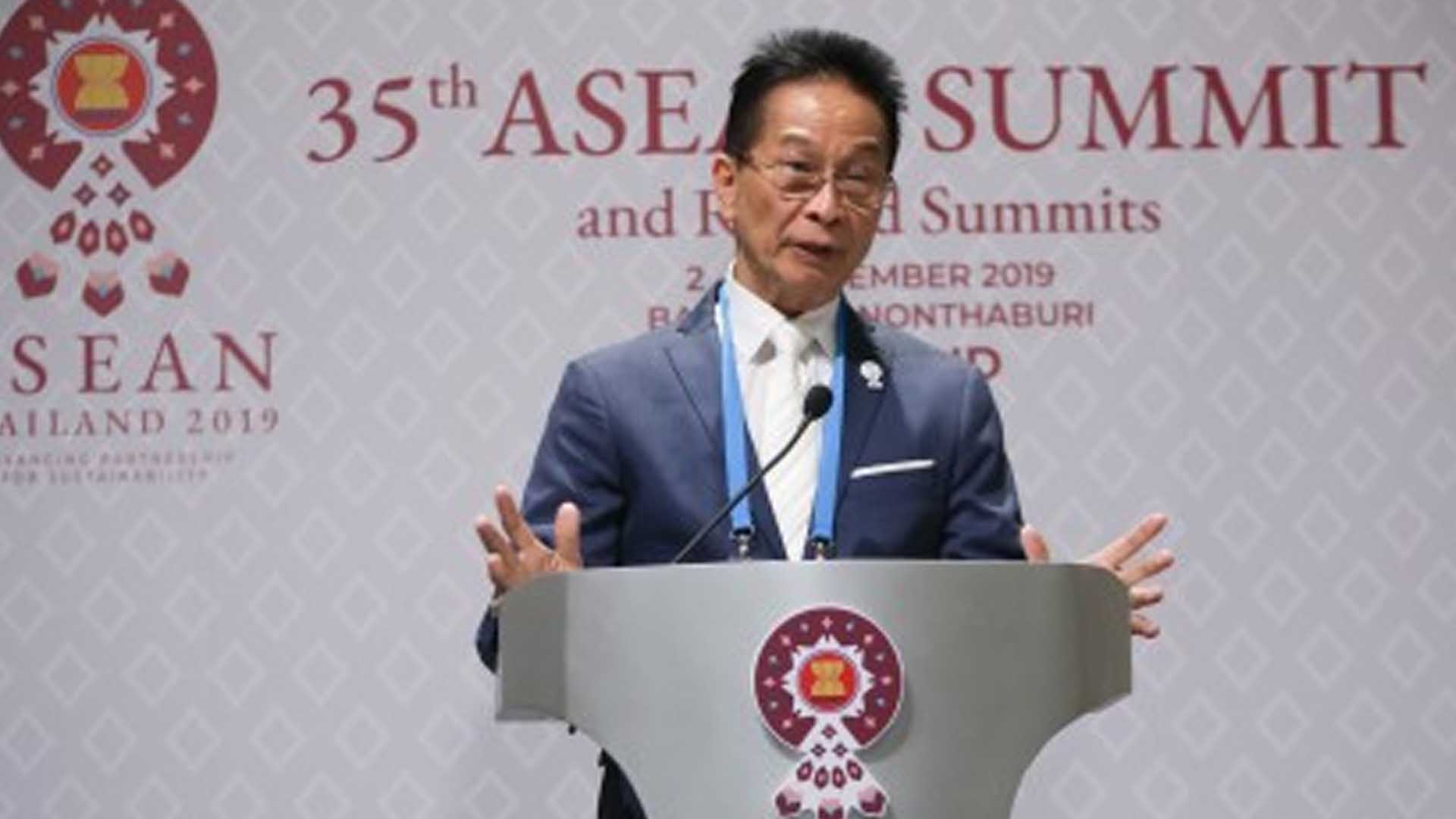President Rodrigo Duterte and his fellow Southeast Asian leaders have agreed to address “common enemies” affecting their region, which include terrorism, ongoing trade war, and South China Sea disputes, Malacañang said.
“All of them wanted to unite against common enemies. And they are all in one to cooperate in the same concern,” Presidential Spokesperson Salvador Panelo said in a press conference in Nonthaburi, Thailand.
“The common enemy, of course, is terrorism, and then the problem in the South China Sea. And with respect to the fear of the trade war, instead of getting better, I think it’s getting worse. All of them are saying that they have to do something about it. And they are united,” he added.
The Association of Southeast Asian Nations (Asean) leaders have been implementing measures to combat transnational crimes, including terrorism.
To deter terror acts, the 10-man Asean adopted a Declaration on Joint Action to Counter Terrorism on November 5, 2011 in Brunei Darussalam.
With respect to trade-related tensions, Duterte appealed to his fellow Southeast Asian leaders during the plenary session of the 35th Asean summit to push for a strengthened economic integration.
The President made the call, as he expressed alarm over protectionism and ongoing trade war between major economic powers that pull down economic growth among Asean member-states.
“We need an open and rules-based trading system to sustain growth. Thus, we should ensure the continued relevance and effectiveness of the World Trade Organization,” Duterte said.
“And Asean must accelerate deeper economic integration through concrete programs and projects, such as RCEP (Regional Comprehensive Economic Partnership),” he added.
The punishing trade war between the United States and China, which has an impact on Asean economies, compelled the Southeast Asian leaders to fast-track negotiations on the RCEP, a proposed free trade pact among the 10-man regional bloc and its six free trade agreement (FTA) partners,
Apart from the Philippines, other member-states of Asean include Brunei Darussalam, Cambodia, Indonesia, Laos, Malaysia, Myanmar, Singapore, Thailand and Vietnam. Meantime, Asean’s FTA partners are China, Japan, India, South Korea, Australia, and New Zealand.
Duterte acknowledged during the 22nd Asean-China Summit that Beijing is Asean’s largest trading partner, third largest external source of foreign direct investment, and an important source of tourists.
He also stressed that Asean and China shared a common interest in preserving and protecting free trade and upholding rules-based multilateral trading system embodied in the World Trade Organization.
“We welcome China’s continued support for Asean’s effort to narrow the development gap among Asean member-states,” the President said.
“We should continue to strengthen trade, investment, and tourism flows between Asean and China through the full and effective implementation of the Asean-China Free Trade Area,” he added.
The Asean member-states and China have agreed that South China Sea claimants must observe “rules-based” approach to avoid tensions in the busy waterway, Panelo said.
The Palace official added that sea disputes should be resolved peacefully, in accordance with international law, including the United Nations Convention on the Law of the Sea (UNCLOS).
“The President has been saying all along, that every country must be rules-based. Meaning, we will have to respect international law, we will have to respect the UNCLOS,” Panelo said.
“We cannot be forcing others to succumb to another countries’ power. In other words, we should be treating each other equally and fairly,” he added.
The Philippines won its petition against China’s extensive claims to most parts of the South China Sea before the Hague-based Permanent Court of Arbitration in July 2016, but Duterte refused to bring up the arbitral ruling during the Asean summit, Panelo said.
In a bid to cool tensions in the South China Sea, Panelo reiterated the President’s stance that the Philippines would avoid being a “pawn” of any countries, including the United States (US) which takes a stand against Beijing’s sweeping claims to the disputed sea.
“Well, I do not know exactly what the US wants in this part of the region. While it’s trying to contain the movement on China with respect to navigation, I cannot even understand, like the President said, when they were starting to build structures there, they did not stop China and it is only now that they are doing it but it’s too late,” he said.
“I think every country would want to have a peaceful and stabilized region for obvious reason. It’s for everybody’s interests,” Panelo added.
US President Donald Trump missed the opportunity to tackle pressing issues with Southeast Asian leaders after he skipped the 35th Asean Summit and Related Summits in Thailand on Nov. 2 to 4, but Panelo believed that the American leader’s absence “does not mean that he is not concerned with what is happening in this region.”
“Well, we all know for the fact that Mr. Trump is trying to survive there. There is an impeachment going on, process. So maybe that’s the reason why he did not come,” Panelo said. (PNA)









